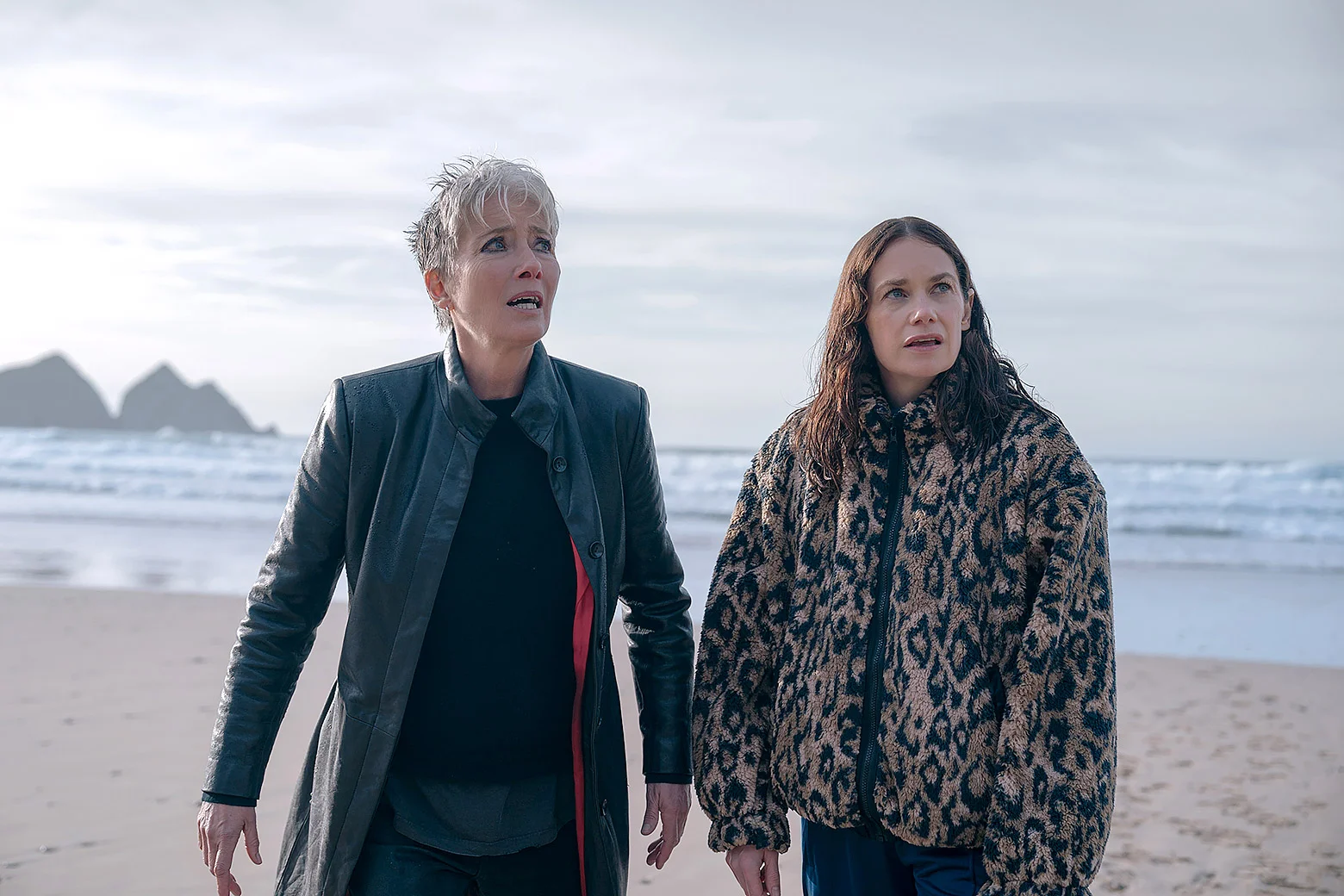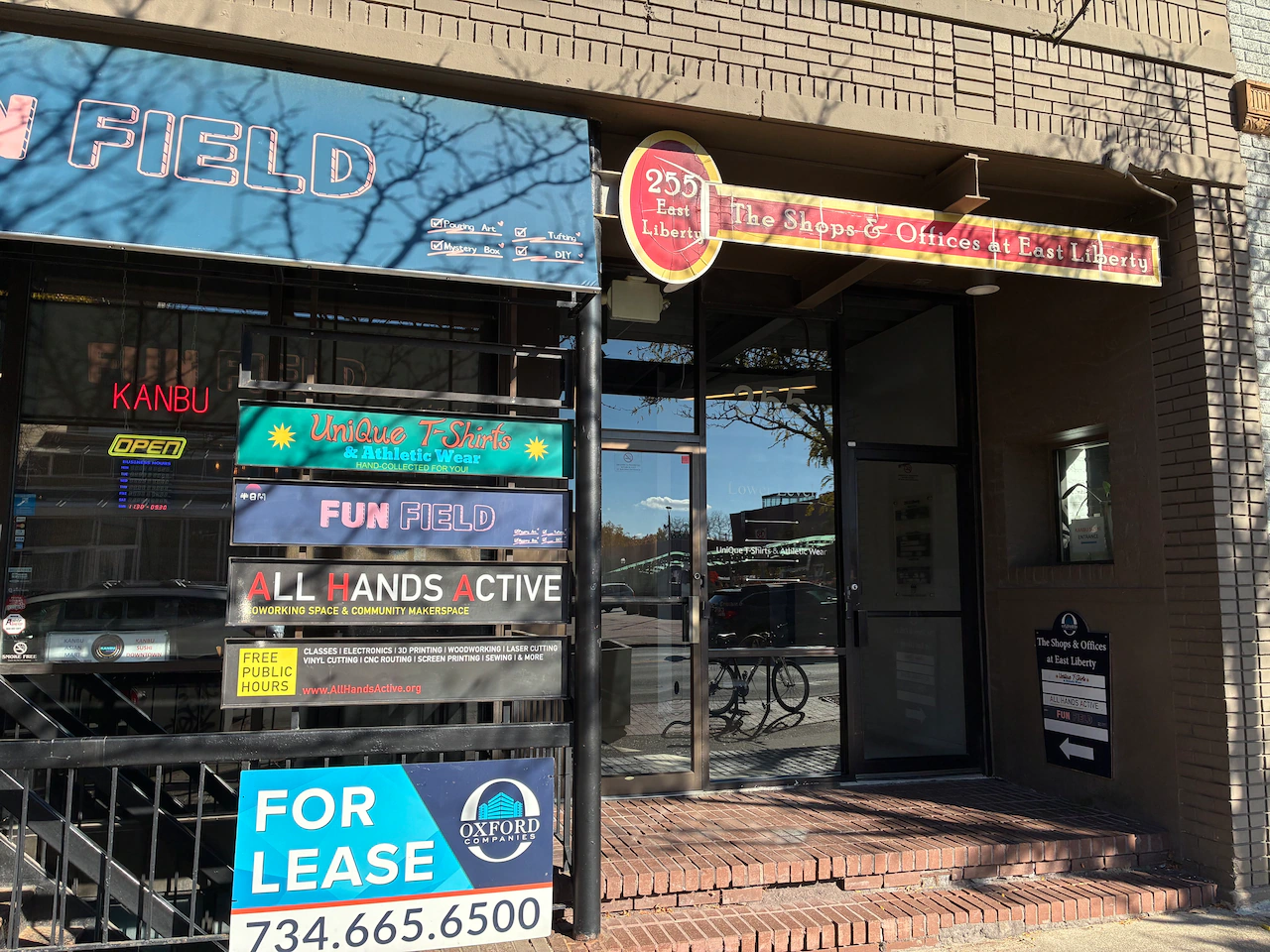Copyright Slate

Mick Herron’s Slough House series—the spy novels that are the basis for Apple TV’s acclaimed Slow Horses—are the sorts of books readers rocket through, and then, when they get to the last one, scrabble about for more. That’s when they lay hands on Down Cemetery Road, Herron’s debut novel and the first in a series of thrillers about a private detective named Zoë Boehm. Down Cemetery Road, published in 2003, before Herron found his groove, won’t quite scratch that Slow Horses itch, but its new Apple TV adaptation might. The television show, starring Emma Thompson and Ruth Wilson, boasts a handsome production and strong performances that make up for the original novel’s weaknesses. The series, like the book, begins with Sarah Tucker (Wilson) preparing for a dinner party that will include a rich man with whom her banker husband (Tom Riley) desperately wants to do business. The rich man (an enjoyably vile Tom Goodman-Hill) is insufferable, and the lasagna gets singed, but all such annoyances vanish in a flash when a house in Sarah’s Oxford neighborhood explodes as Sarah and her guests are seated around the table. Sarah doesn’t really know that house’s residents, but she can’t stop thinking about the 6-year-old girl who is the explosion’s only survivor. When she tries to deliver a get-well card from the child’s classmates, she learns that the girl, Dinah, has been mysteriously spirited away and that official records of her fate are sealed. The more resistance Sarah encounters in her quest for Dinah, the harder she searches, hiring a sad-sack private investigator, Joe (Adam Godley), to help her. This leads to further murders and mysteries, sending Sarah, along with Joe’s wife, Zoë (Thompson), on the road to save the little girl. Like most of Herron’s Slow Horses plots, this one hinges on the British government’s efforts to cover up a very, very bad thing in its past. As Herron sees it, the U.K.’s biggest enemy is itself, and its leaders are ruthless in covering their asses. The exact nature of the cover-up emerges gradually, but from the beginning, Down Cemetery Road features scenes set at an unnamed intelligence agency. There, the head, C (Darren Boyd, appropriately sinister), berates Hamza (Adeel Akhtar), the bumbling underling who hires the wrong thugs to clean up the mess and thereby unleashes a vengeful, stone-faced psychopath (Fehinti Balogun), a man scary enough to give No Country for Old Men’s Anton Chigurh a run for his money. A long and exciting race to Scotland ensues, including a smashing Hitchcockian cat-and-mouse chase sequence on a passenger train. As a novel, Down Cemetery Road has some fundamental problems. Sarah’s motivation doesn’t make a lot of sense, especially as the quest for Dinah becomes more and more dangerous. For a main character, she’s underwhelming, distracted by her crappy marriage and the lingering effects of a weird incident from her university days when, under the influence of drugs, she jumped off the roof of her college. Sarah is downtrodden and passive, apart from her sudden, intense, and uncharacteristic concern for Dinah. Zoë, by contrast is bold, abrasive, and charismatic, but she fully enters the plot nearly a third of the way into the book. Zoë’s motivation too is pretty sketchy, but unlike Sarah, she’s more plausible as the sort of person who might stubbornly take up a lost cause at great personal risk. The TV version of Down Cemetery Road couldn’t be a better illustration of how gifted actors can overcome the weak spots in a story. As Zoë, in her black stovepipe jeans and spiky silver hair, Thompson is a lanky, aging punk who does not suffer fools gladly—in fact, she doesn’t even suffer them rudely. You can see the seeds of Slow Horses’ Jackson Lamb in Zoë’s surly wisecracks and cursory treatment of other people’s feelings. Zoë lacks Lamb’s physical repulsiveness, however, and she has an active sex life—though, unfortunately, not with her husband. Meanwhile, Wilson, with her sulky child’s face and pinched intelligence, transforms Sarah into a dormant bohemian, an art restorer whose funkiness has been gradually eroded by life with her finance-bro spouse. Rebellion flickers in her eyes even before the explosion that fully ignites it, and Wilson makes it plausible that finding Dinah might serve as Sarah’s way of rediscovering herself. In his Slough House books, Herron figured out how to constellate a series around a character like Lamb or Zoë, a person readers love but find too extreme to be relatable, a person whose true nature ought to remain a bit mysterious. Every Holmes needs his Watson, after all. The Slough House novels are ensemble pieces, in which the bland River Cartwright provides an entry, but half a dozen rich character portraits bloom. Sarah and Zoë make for a less stable foundation for a detective series, and Sarah is peripheral to the action in the two Zoë Boehm novels that follow Down Cemetery Road, though she does come back for a leading role in the fourth. Given this source material, it’s unlikely Sarah and Zoë will be hanging out a shingle together in future seasons of the show, the fine chemistry between Thompson and Wilson notwithstanding. That seems for the best. Herron’s vision is notably dark. In the Slough House novels, the only abiding moral imperative is Lamb’s commitment to his “joes.” Everyone else in power is out for themselves and willing to do just about anything to prevail. Down Cemetery Road takes a similarly bleak view. That calls for a character with Zoë’s energy and blunt humor as a counterbalance, and Sarah lacks the verve she requires in a sidekick. Since Thompson’s Zoë remains too irresistible a character to go to waste, here’s hoping she can find herself a better Watson in seasons to come.



